Recent Blog Posts
What to Do If Charged with Human Smuggling in Texas
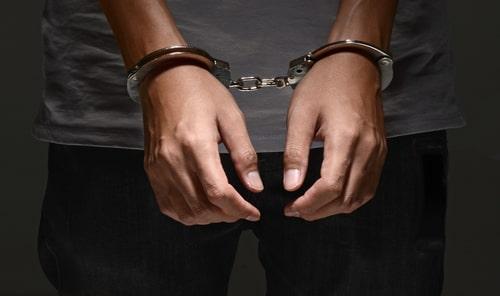 If you’ve been charged with human smuggling in Texas, these cases move fast and often involve multiple law enforcement agencies. As of 2026, Texas continues to aggressively pursue human smuggling prosecutions across the state.
If you’ve been charged with human smuggling in Texas, these cases move fast and often involve multiple law enforcement agencies. As of 2026, Texas continues to aggressively pursue human smuggling prosecutions across the state.
This is not rare. In one week in 2025 alone, the U.S. Attorney’s Office for the Southern District of Texas reported 235 new immigration-related criminal cases, including multiple human smuggling charges, showing how frequently these cases are filed. If you are facing this situation, knowing what to do next is critical. A San Antonio, TX human smuggling defense lawyer can help you understand the charge, protect your rights, and respond before mistakes are made.
Understanding Intoxication Manslaughter in San Antonio, Texas
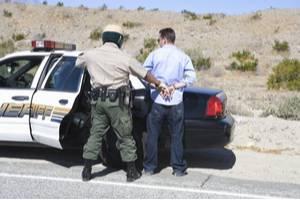 Intoxication manslaughter is one of the most serious charges under Texas law. It often follows a sudden and tragic accident, leaving people searching for clarity about what happened and what comes next.
Intoxication manslaughter is one of the most serious charges under Texas law. It often follows a sudden and tragic accident, leaving people searching for clarity about what happened and what comes next.
In San Antonio, fatal crash cases receive close attention. In 2025, local reporting on the City of San Antonio’s Vision Zero efforts highlighted the city’s continued focus on reducing traffic deaths and severe injuries.
As of 2026, Texas courts continue to closely examine intoxication manslaughter cases, and early decisions often shape how the case moves forward. If you are under investigation or have been charged, speaking with a San Antonio criminal defense lawyer early can help you understand the process and protect your rights.
Using Texas’s Stand Your Ground Law in Criminal Defense
 As of 2026, Texas still recognizes Stand Your Ground as a lawful self-defense principle. It allows you to defend yourself when you reasonably believe force is immediately necessary to stop an unlawful threat. That protection exists even if the situation later leads to criminal charges. However, asserting you were acting in self-defense is rarely simple.
As of 2026, Texas still recognizes Stand Your Ground as a lawful self-defense principle. It allows you to defend yourself when you reasonably believe force is immediately necessary to stop an unlawful threat. That protection exists even if the situation later leads to criminal charges. However, asserting you were acting in self-defense is rarely simple.
Texas Department of Public Safety crime data released in 2025 shows that aggravated assault remains one of the most frequently reported violent offenses tried under criminal law. And self-defense claims often arise from these fast-moving, highly charged encounters. Building a defense to fight the allegations can be complicated and requires you to understand the complex laws that govern them.
If you are facing assault or violent crime charges, a San Antonio, TX criminal defense lawyer can help determine whether Stand Your Ground applies to your case and how it should be raised.
Do I Get My License Back After I Win My DUI Case in Texas?
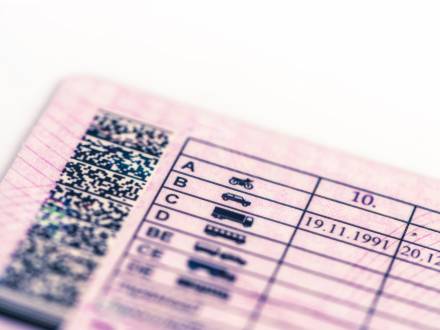 Winning your DUI case in Texas doesn't always mean your driver's license is automatically restored. As of 2025, Texas law treats DUI charges and license suspensions as related but independent processes.
Winning your DUI case in Texas doesn't always mean your driver's license is automatically restored. As of 2025, Texas law treats DUI charges and license suspensions as related but independent processes.
A DUI arrest can disrupt your daily life long before your case is even resolved in court. Losing your ability to drive can happen before a conviction, and people often assume that if they win their DUI case, their driver's license will automatically come back. A San Antonio, TX DUI defense lawyer can help clarify how Texas law actually handles this situation so you can approach this with realistic expectations and understand your options.
Why Are DUI Charges and License Suspensions Handled Separately in Texas?
Texas law separates the criminal DUI case from the process that controls your driving privileges. The criminal case decides whether the State proves the DUI charge under Texas Penal Code § 49.04, which defines the offense of driving while intoxicated. That case is handled in court.
What Is Constructive Possession in a Texas Drug Case?
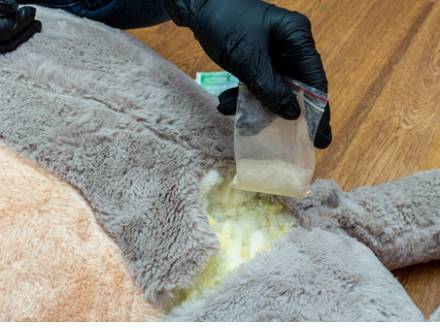 Constructive possession can apply in a drug case even when nothing is found directly on a person. If you are facing state or federal drug charges, you need to know how this rule works under Texas law. An attorney can help you make sense of what is happening and what legal options may exist. Start building your defense by contacting the San Antonio, TX drug crimes defense lawyer at Law Offices of Sam H. Lock.
Constructive possession can apply in a drug case even when nothing is found directly on a person. If you are facing state or federal drug charges, you need to know how this rule works under Texas law. An attorney can help you make sense of what is happening and what legal options may exist. Start building your defense by contacting the San Antonio, TX drug crimes defense lawyer at Law Offices of Sam H. Lock.
What Does "Constructive Possession" Mean Under Texas Law?
Constructive possession means the state claims a person knew about drugs and had the ability to control them, even if the drugs were not found in that person’s hands, pockets, or bag. This is different from actual possession, where drugs are found directly on someone. With constructive possession, the focus is on control and awareness.
Can Schools Press Criminal Charges for Cyberbullying in Texas?
 Cyberbullying is an increasingly common internet crime in Texas and other states. Messages, posts, and videos that start online can sometimes lead to school discipline or even a criminal investigation. Schools can report cyberbullying to the police, and that report can start a criminal case. If your child is being investigated for this kind of offense, a San Antonio, TX cyberbullying charge defense lawyer can help.
Cyberbullying is an increasingly common internet crime in Texas and other states. Messages, posts, and videos that start online can sometimes lead to school discipline or even a criminal investigation. Schools can report cyberbullying to the police, and that report can start a criminal case. If your child is being investigated for this kind of offense, a San Antonio, TX cyberbullying charge defense lawyer can help.
What Counts as Cyberbullying in Texas Schools?
Cyberbullying refers to the use of electronic communication to threaten, embarrass, or harass another person. This can include text messages, social media posts, or online chat — basically any form of electronic communication.
Under Texas Education Code § 37.0832, also known as David’s Law, schools must take action if this type of communication affects a student’s education or sense of safety. The law gives schools the authority to discipline students who target others online. Even when something happens outside of school, the school can still respond if the actions cause problems on campus or among students.
Can a Murder Charge Be Dropped to Manslaughter in Texas?
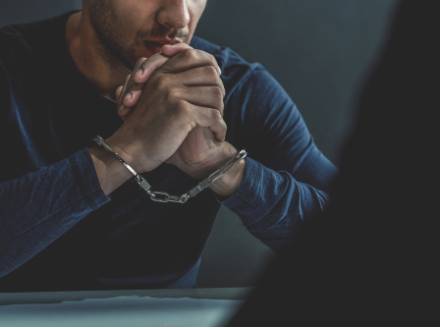 Being charged with homicide is an intimidating experience. The penalties are severe, and a conviction will have lifelong consequences. In some cases, a murder charge may be reduced to manslaughter. Whether this is possible depends on what the evidence shows and what your criminal defense strategy looks like. Our San Antonio, TX murder defense lawyer can guide you through the legal process and help you understand each step as your case moves forward.
Being charged with homicide is an intimidating experience. The penalties are severe, and a conviction will have lifelong consequences. In some cases, a murder charge may be reduced to manslaughter. Whether this is possible depends on what the evidence shows and what your criminal defense strategy looks like. Our San Antonio, TX murder defense lawyer can guide you through the legal process and help you understand each step as your case moves forward.
Understanding Homicide Charges in Texas
In general, Texas law uses the word "homicide" to describe any situation where one person causes another person’s death. However, the law does not treat every type of homicide the same. The main difference between charges involves your mental state at the time of the incident.
What Do I Do if the Police Say I Failed a Field Sobriety Test?
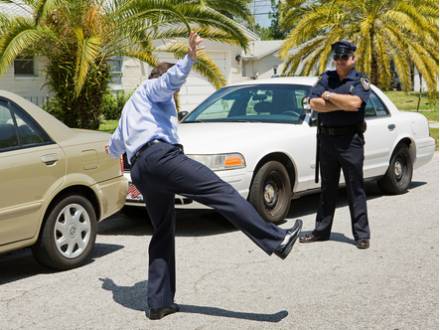 Failing a field sobriety test during a DWI stop is not an automatic conviction. These tests are supposed to measure balance, coordination, and focus, but they are not always accurate. Many sober drivers do poorly on them for several reasons. If this happens to you, speak with an experienced San Antonio, TX DWI defense lawyer right away to fight to protect your driver’s license, record, and reputation.
Failing a field sobriety test during a DWI stop is not an automatic conviction. These tests are supposed to measure balance, coordination, and focus, but they are not always accurate. Many sober drivers do poorly on them for several reasons. If this happens to you, speak with an experienced San Antonio, TX DWI defense lawyer right away to fight to protect your driver’s license, record, and reputation.
How Do Police Determine Whether You Pass or Fail a Field Sobriety Test in Texas?
In Texas, officers usually use three tests approved by the National Highway Traffic Safety Administration (NHTSA). These include the Horizontal Gaze Nystagmus (eye test), the Walk-and-Turn, and the One-Leg Stand. These tests look for indicators like swaying, missing heel-to-toe contact, or using your arms for balance.
However, whether you pass or fail is at the officer’s discretion. There is no objective score or scientific threshold. Under Texas Transportation Code §724.011, drivers automatically consent to chemical testing if arrested. However, field sobriety tests are not required by law. Police officers mainly use these tests to build probable cause for a DWI arrest.
How Can a Texas Drug Arrest Become a Federal Case?
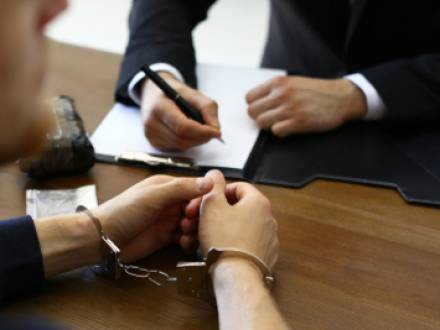 Most drug arrests in Texas are handled by local or state prosecutors under the Texas Controlled Substances Act. These cases usually involve city or county police and are tried in state court. However, some arrests can quickly become much more serious. Under certain circumstances, a local case can turn into a federal case. When that happens, the process, penalties, and court system all change. A San Antonio, TX federal drug crimes defense lawyer can help you understand why this happens and build a strong defense strategy to fight the charges.
Most drug arrests in Texas are handled by local or state prosecutors under the Texas Controlled Substances Act. These cases usually involve city or county police and are tried in state court. However, some arrests can quickly become much more serious. Under certain circumstances, a local case can turn into a federal case. When that happens, the process, penalties, and court system all change. A San Antonio, TX federal drug crimes defense lawyer can help you understand why this happens and build a strong defense strategy to fight the charges.
The Difference Between State and Federal Drug Crimes
State drug charges usually involve smaller amounts or local activity. For example, under Texas Health and Safety Code § 481.115, it is illegal to possess a controlled substance without a valid prescription. These cases are handled by local prosecutors and heard in state court.
Can I Face Criminal Charges for Passing a School Bus in Texas?
 In Texas, the rules for passing a stopped school bus are simple. The law considers it a serious traffic violation that can result in criminal charges. If you were ticketed or arrested, you have the right to challenge the allegations against you. A San Antonio, TX traffic violations defense lawyer can explain your rights and help you build a strong defense.
In Texas, the rules for passing a stopped school bus are simple. The law considers it a serious traffic violation that can result in criminal charges. If you were ticketed or arrested, you have the right to challenge the allegations against you. A San Antonio, TX traffic violations defense lawyer can explain your rights and help you build a strong defense.
Is Passing a Stopped School Bus a Misdemeanor or Felony in Texas?
Under Texas Transportation Code § 545.066, drivers must stop when a school bus is using red flashing lights or has an extended stop sign. The rule applies to vehicles coming from either direction, unless the road is divided by a barrier. Failing to stop is a criminal offense.





